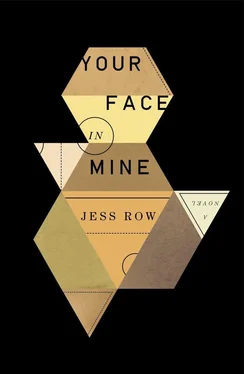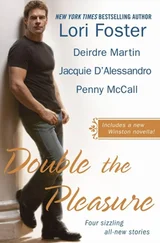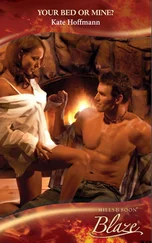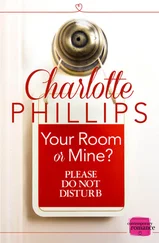Robin Wilkinson. Mort Kepler.
Gamely, she reaches through the window to shake his hand. Big fan, she says. Sorry you lost your show. I’m sure it’s only temporary, right? You’ll be back soon somewhere.
Well, he says, still smiling, your friend here didn’t make it easy for me. Not to be rude or anything. Just so you know who you’re associating with.
Nice to see you, Mort, I say, taking Robin’s elbow. And we leave him there, blocking traffic, his emergency blinkers on. Do me a favor, I tell her, don’t look back for a minute. Ignore him.
He was really hostile. I’m surprised.
Did you ever actually listen to his show?
A few times. He struck me as a sort of sweet crackpot type. I always pictured him with a beard, for some reason.
Do you ever notice how easy it is for people his age to be angry, and intrusive, and cruel , and act like they’re doing you a favor? Or, alternatively, like it’s all your fault?
Well, it was the We Generation.
The Me Generation, you mean.
No, the We Generation. As in, we did everything right and you guys came along and screwed it up . As if we voted for Reagan.
She tosses me a smile, sideways, as if to say, this is fun. Too bad we can’t be friends.
We’re crossing the street now to enter Broadway Market, with all its attendant smells, the fresh-roasted coffees, the deli meats, Old Bay, Belgian fries, fresh bluefish and dolphin and skate. I remember, out of nowhere, Adele Patinkin, who I dated for a few months at Amherst, and how we used to go to the Kosher Kitchen every Saturday night for havdalah, the end of Shabbat service, and how a painted box of spices went hand to hand around the room, everyone getting a whiff of cloves and cinnamon, nutmeg and cardamom. Reawakening to the world. Food, it seems to me, and the smell of food, is the world’s great consolation prize, its way of saying, things can’t possibly be so bad . I fall into step after Robin, who looks from side to side, grinning, nearly licking her parted lips, flooded with voracious and well-earned desire, who has forgotten me entirely, for the moment, and I realize that I’ll have to come up with some excuse for having no appetite at all, for needing to leave, abruptly, for needing to sit in my car for fifteen minutes before I can drive, waiting for my starved hands to stop shaking.
Out of sight, behind the forsythias at the far end of Paul and Noreen Phillips’s front lawn, the children are singing “Human Nature.” There must be fifteen of them, in a crowd of forty adults, and for the length of the party they’ve been out in the grass, unattended, with a separate buffet and drinks table, playing hide-and-seek, having somersault contests, dance contests, cheerleading demonstrations. Sherry and Tamika among them, of course, almost shoulder to shoulder, clearly sisters, with identical coils of spaghetti braids that never come loose, no matter how vigorously they roll on the grass. Now the whole crowd has disappeared into the gloaming, the pastel May twilight, and snatches of warbly harmony come floating across the grass:
Reaching out to touch a stranger
Electric eyes are everywhere
— I’ve been trying to remember the first time I ever saw his face, Marshall Haber is saying. It wasn’t at the convention. Before that. It must have been in some TV interview, because he was talking. Sitting down and talking. No idea what he was saying, but you could just tell from his manner, his posture, that he had something going on. You could tell by the way he folded his hands in his lap. Control. No unnecessary movements. Right? And this is when he wasn’t even a senator yet.
Yeah, that’s what people always say, Lee says. The aura and all that.
I’m sitting at the edge of the patio, facing out, fallen into shadow. It’s the moment at a party where the detritus of paper plates and napkins accumulates on every surface, second or third drinks are in hand, and everyone over the age of twenty-five is sitting down and unlikely to rise anytime soon. Ten minutes ago Martin and Robin and I were sitting here in a tight circle, eating shrimp and grits, but she took a call from work and disappeared, and the Brain Trust filtered in, overfed, almost limping with the extra weight, everyone shaking my hand, Paul even slapping me on the shoulder. You again? Where’s your notebook? Is this on the record?
I wouldn’t call it an aura, Lee says. That makes me think of a halo, you know? It wasn’t that he was trying out for sainthood. You didn’t get an MLK vibe. Not a Jesse vibe. That’s the thing: he was already beyond that. People called it post-racial; it wasn’t post-racial. It was post— race as an issue . There’s a crucial difference there. It was, like, say you call up a lawyer because you need to hire a lawyer, and then you walk into his office, and he’s black. Didn’t sound black on the phone, didn’t see a picture, no warning, and then he’s right there, and he gives you this look, you know, he sees you’re off guard, and his look says, you got a problem with that? Not in an aggressive way. In an informative way, an appraising way. Like, is this going to be a problem? That’s what he was like, those first few years. After the speech. Hello, America, I’m going to be your next president. I’m the best man for the job. I happen to be black. You got a problem with that?
I got a problem with the phrase happen to be , Marshall says.
Okay. Okay. That’s your job. His job was to use the language of the moment. And white people, excuse me, Kelly, but white people, dominant-paradigm people, they love to say, he happens to be from Mexico. She happens to be a lesbian. They happen to be part of a polygamous macrobiotic cult . Because it makes it all random and unintentional. I happened to fall down and break my ankle. It all seems so unfair that way. You don’t have to draw any connections, just look at what’s in front of you. We’re all the same. God just happened to hit you with the ugly stick.
You know what I’m tired of? Paul says. I’m tired of interpreting the meaning of Obama . Shouldn’t we be over that by now, now that it’s a done deal? A president should not mean, but be.
The Obama era. The Obama years.
Keep your powder dry and your drones in the air.
Bet he contemplated using a drone on John Boehner once or twice. Or Grover Norquist. Or Scalia.
Clarence Thomas. Silent but deadly. Shit, Thomas is the drone. The stealth bomber of the white right.
Y’all bringing me down, Paul says. You hear that singing? None of these kids were even thought of when that song was on the radio. For them it’s ancient history. It might as well be the Beatles. Or Elvis.
Don’t you know kids don’t listen to the radio anymore? Marshall says. For them it’s all about Glee and American Idol . They like a song, they pick it up. Doesn’t matter if it’s from yesterday or 1930. I like that. It’s an eclectic era. Take what you want, the rest is dross.
It’s because the music they’re putting out today is crap, Lee says. All the Nicki Minaj, Lady Gaga, Beyoncé stuff, with the Auto-Tune and the electric beats, all that fizzy special-effects nonsense.
That’s not fair to Beyoncé, Martin says. She’s the real thing. She’s a throwback.
Says the man who listens to Joni Mitchell. Paul leans over and looks at me. Kelly, has he told you about that? Better make sure you get it down on the record so he can’t deny it later. First time he picked me up in his car, what was he playing? Blue. Thought I was going to shit my pants. Seriously, that was some country stuff. So country it was like, not even twentieth-century, like, medieval . Like there should be recorders and harpsichords on it. And he tried to get off telling me it was Robin’s tape.
Читать дальше












